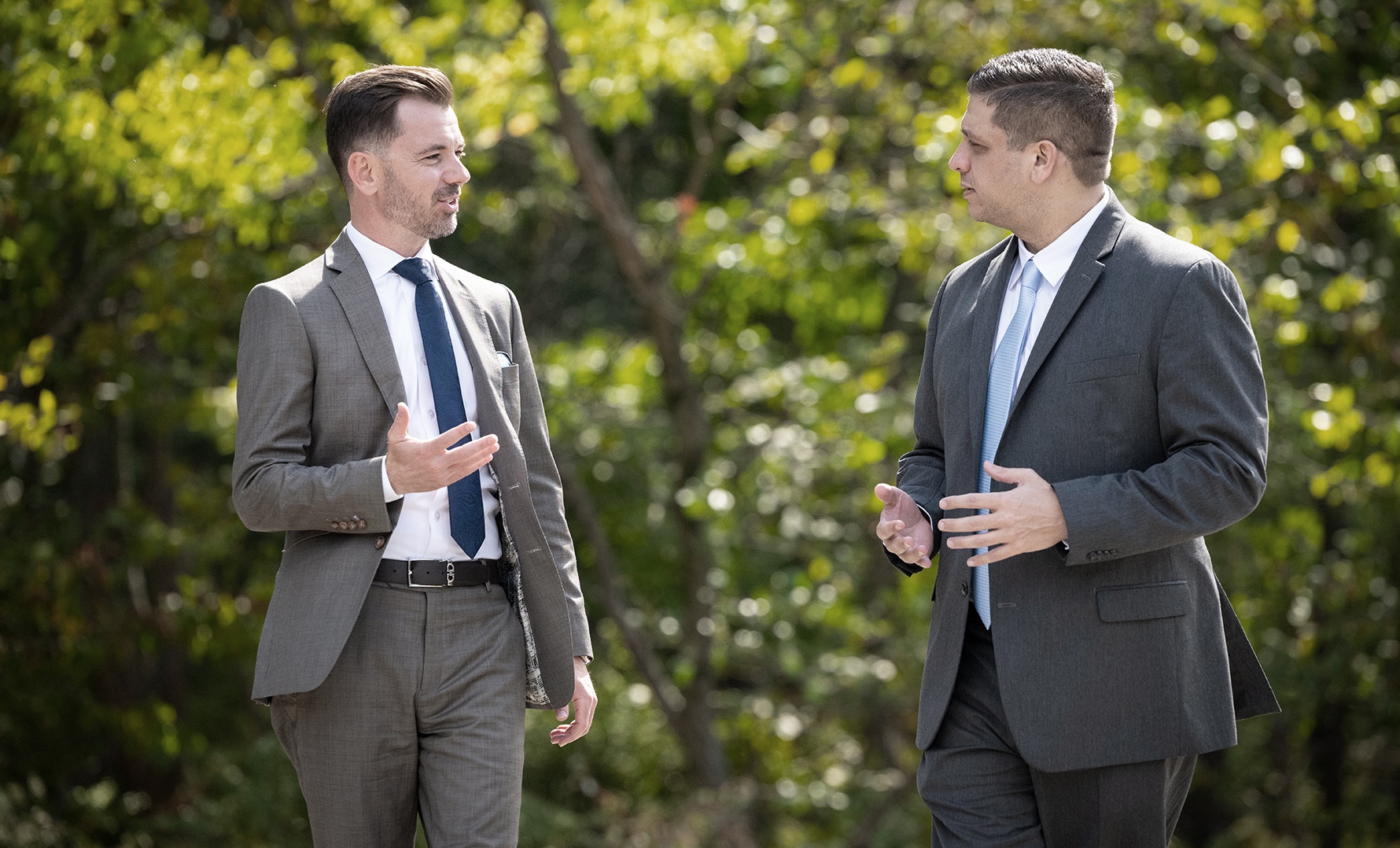
If you’ve been hurt in a slip and fall accident, you already know how stressful it can be to deal with medical bills, missed work, and the uncertainty of recovery. But what happens when your injuries overlap with a pre-existing condition, aka something you were already being treated for before the accident?
This is one of the most common challenges in personal injury law. Insurance companies often try to use a pre-existing injury as an excuse to deny or minimize valid claims. However, that doesn’t mean you can’t recover compensation. With the right legal strategy, you can prove that your accident made your condition worse and, furthermore, that you deserve to be compensated for the harm you’ve suffered.
The attorneys at Camili & Capo help clients across New Jersey navigate complex slip and fall cases involving pre-existing conditions, ensuring your rights are protected every step of the way.
Understanding How Pre-Existing Conditions Affect a Slip and Fall Case
A pre-existing condition is any medical issue you had before the accident. Common examples include:
- Back or neck pain from an old car crash
- Previous knee or shoulder injuries
- Arthritis or joint problems
- Chronic pain or mobility issues
- Past surgeries or spinal conditions
When you suffer a new injury in a slip and fall case, insurance companies may claim your symptoms existed long before the fall, even if the accident clearly made them worse. They often argue, “You were already hurt,” to reduce or deny payment.
But New Jersey law is clear: if an accident aggravates or exacerbates a pre-existing condition, you may still recover damages for the additional harm caused by the fall.
How a Pre-Existing Condition Can Complicate Your Slip and Fall Case
Having a pre-existing condition doesn’t disqualify you from filing a slip and fall case, but it can make things more complex. Here’s how it often affects the claims process:
Increased Scrutiny from Insurers
Insurance companies will request your complete medical history to look for reasons to blame your pain on something other than the fall. They may argue your current symptoms match old injuries, not new ones.
More Extensive Medical Review
Your doctors will need to carefully document how your accident changed your condition. This often requires comparing diagnostic tests before and after the fall, such as MRIs or X-rays.
Additional Expert Testimony
In more serious slip and fall cases, your attorney may bring in medical experts to explain how the accident worsened your pre-existing injury and caused new damage.
Longer Claim Timelines
Because of the added complexity, these cases sometimes take longer to resolve. However, building a strong, evidence-based case can make the difference between partial compensation and full recovery.
Proving That a Slip and Fall Worsened a Pre-Existing Condition
One of the most important steps in a slip and fall case involving a pre-existing condition is showing that the accident directly aggravated your prior injury. You and your attorney will work together to collect key evidence, such as:
- Medical Records: Documentation before and after the fall showing the change in your symptoms or physical limitations.
- Doctor Statements: A physician’s written opinion linking your worsened condition to the slip and fall incident.
- Imaging Results: Updated scans (like MRIs, CT scans, or X-rays) that show new or increased damage.
- Treatment Records: Evidence of new treatments, surgeries, or therapy sessions that became necessary after the fall.
- Witness Testimony: Statements from people who saw your accident or noticed your physical decline afterward.
Your lawyer can also demonstrate that your quality of life, ability to work, or daily activities have changed since the accident, proving that the fall made an existing issue significantly worse.
The “Eggshell Skull” Rule in New Jersey Slip and Fall Cases
New Jersey law follows what’s known as the “eggshell skull” rule. This means a defendant must take an injured person as they find them. If you had a pre-existing condition that made you more vulnerable to injury, the at-fault party is still fully responsible for the damage caused by their negligence.
For example, if you slipped on a wet grocery-store floor and re-injured a surgically repaired knee, you can still pursue compensation for the increased pain, medical costs, and recovery time. The fact that your knee was previously injured does not excuse the property owner’s negligence.
Similar Post: Do Photos of Your Shoes Matter in a Slip and Fall Lawsuit?
Common Types of Pre-Existing Conditions in Slip and Fall Cases
Some health conditions are especially likely to come up in slip and fall cases:
- Back or Spine Issues: Herniated discs or chronic back pain can worsen after a fall.
- Joint Injuries: Falls often aggravate old knee, hip, or shoulder problems.
- Arthritis: A pre-existing degenerative joint disease can accelerate after trauma.
- Previous Fractures: Bones that have healed from earlier breaks are more prone to reinjury.
- Neurological Conditions: Falls can worsen conditions like nerve pain or balance disorders.
Each case is unique, so it’s critical to document exactly how your symptoms changed after the accident.
How Camili & Capo Builds Strong Slip and Fall Cases
When you work with Camili & Capo, our legal team takes the time to understand your full medical history to strengthen your claim. Our attorneys investigate every detail to prove the fall made your condition worse and that you deserve fair compensation.
Our process typically includes:
- Comprehensive Case Evaluation: Reviewing medical history, treatment records, and diagnostic imaging.
- Coordination with Medical Experts: Consulting doctors who can testify about the aggravation of pre-existing injuries.
- Investigation of Property Negligence: Collecting evidence showing the property owner failed to keep the premises safe.
- Negotiation with Insurance Companies: Countering attempts to minimize your claim due to your prior condition.
- Litigation, if Necessary: Taking your slip and fall case to court if the insurer refuses a fair settlement.
This strategic approach ensures your voice is heard and your injuries are taken seriously, even when your case is complicated by medical history.
Compensation You May Recover in a Slip and Fall Case
Even with a pre-existing condition, you may be entitled to significant compensation, including:
- Medical expenses (hospital bills, physical therapy, medications)
- Future treatment or surgery costs
- Lost wages or reduced earning capacity
- Pain and suffering
- Emotional distress
- Loss of enjoyment of life
Your attorney will calculate these damages based on the full extent of your post-accident injuries and the impact on your daily life.
Similar Post: New Jersey Slip and Fall Accidents: What Constitutes a Catastrophic Injury?
Why You Need an Experienced Slip and Fall Lawyer
Insurance companies love to argue that your pain existed before the fall. Without skilled legal representation, it’s easy for them to twist your medical history and minimize your injuries.
An experienced premises liability lawyer knows how to counter those tactics with evidence, expert testimony, and a deep understanding of New Jersey’s personal injury laws. The right attorney can make the difference between walking away with minimal coverage and securing full, fair compensation for your injuries.
Contact Camili & Capo for a Free Consultation Following Your Slip and Fall Injury
If you were hurt in a slip and fall accident and already had a pre-existing condition, don’t assume you’re out of options. You still have rights and your accident may have worsened your condition in ways that deserve compensation.
At Camili & Capo, our team understands how to handle these complex claims with care, compassion, and precision. We’ll review your medical records, investigate the property conditions that caused your fall, and build a case that tells the full story of your injuries.
Call (973) 834-8457 or fill out our online contact form today for a free consultation. Let our New Jersey slip and fall attorneys fight to protect your rights and help you get the compensation you need.
Disclaimer: This blog is intended for informational purposes only and does not establish an attorney-client relationship. It should not be considered as legal advice. For personalized legal assistance, please consult our team directly.

